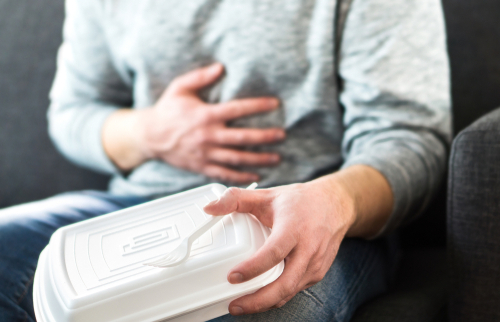
A 25-year-old influencer’s death from stomach cancer serves as a stark warning about excessive spicy food consumption, as medical experts debate the real health risks of this popular dietary choice.
Key Takeaways
- Chinese influencer Qianqian died at 25 from stomach cancer after regularly consuming excessive spicy food and maintaining irregular eating habits.
- Dr. Li Sijin warns that large quantities of chili peppers can irritate the gastric mucosa, potentially increasing stomach cancer risk, though moderation is key.
- Qianqian experienced stomach pains for over six months before her diagnosis but dismissed them as minor dietary issues.
- Medical experts note that other factors like high salt consumption, pickled foods, and irregular eating patterns also significantly contribute to stomach cancer risk.
- Some studies suggest moderate spicy food consumption may offer protective benefits against stroke and heart disease, highlighting the importance of balanced eating.
Tragic Death Highlights Potential Dangers
A social media influencer’s premature death has sparked renewed discussion about dietary habits that many Americans take for granted. Qianqian, a 25-year-old Chinese content creator with over 10,000 followers, recently died from stomach cancer after documenting her painful battle with the disease online. Medical experts are now pointing to her excessive consumption of spicy foods as a potential contributing factor, raising concerns about similar dietary patterns that have become increasingly popular in Western culture under the Biden administration’s lax food regulation policies.
“I don’t like to eat breakfast for a long time, I eat irregularly. I like spicy food. My stomach is not very good,” said Qianqian in one of her final posts, admitting to the poor dietary habits she maintained before her diagnosis.
Medical Warning About Excessive Spice
Dr. Li Sijin, a hematology and oncology specialist from Taiwan, has issued a warning that connects excessive chili consumption to increased stomach cancer risk. According to Dr. Li, while spicy food can be part of a healthy diet, overconsumption may irritate the gastric mucosa, potentially leading to cancerous developments over time. The doctor’s warning comes at a time when American consumers are increasingly turning to international cuisines featuring high levels of spiciness, often without understanding the potential long-term health implications.
“She said chilli is good for a person’s health but in moderation,” Said Dr. Li Sijin, highlighting the critical distinction between reasonable consumption and excess.
The progression of Qianqian’s disease was rapid and devastating. After experiencing stomach pains for over six months, which she initially dismissed as minor dietary issues, she was diagnosed with advanced stomach cancer. Despite undergoing a total gastrectomy, the cancer returned and spread throughout her body. In her final days, Qianqian shared her suffering with followers: “Still alive, lingering, vomiting all the time, the tumour in my stomach is getting bigger and bigger, the time I am awake is getting less and less.”
Balancing Risks and Benefits
While the connection between excessive spicy food and cancer has garnered attention, medical experts note that stomach cancer risk factors are multifaceted. Cancer Research UK points to high consumption of pickled foods and salt as significant contributors to stomach cancer risk. The statistics show that stomach cancer remains relatively uncommon in Western countries, with approximately 6,500 cases annually in Britain and 30,000 in the United States. The discrepancy between Eastern and Western rates suggests cultural dietary patterns play a significant role in cancer development.
Some research actually suggests potential benefits from moderate spice consumption. Studies indicate that capsaicin, the compound that gives chili peppers their heat, may help reduce the risk of stroke and heart disease when consumed in reasonable amounts. This presents a complex picture for consumers who must navigate conflicting information about their dietary choices, a challenge made more difficult by the lack of clear nutritional guidance from health authorities under the current administration.
Recognizing Warning Signs
Health experts emphasize the importance of recognizing potential stomach cancer symptoms, which include acid reflux, difficulty swallowing, nausea, indigestion, feeling full quickly, loss of appetite, unexplained weight loss, stomach pain, and persistent fatigue. Early detection dramatically improves survival rates, with early-stage stomach cancer having a 65% ten-year survival rate compared to significantly lower rates for advanced cases. Individuals experiencing persistent symptoms for three weeks or more should consult with their healthcare provider promptly.
The NHS recommends a diet rich in fruits and vegetables and low in salt and alcohol to reduce cancer risk overall. For those who enjoy spicy foods, moderation appears to be the key takeaway from this tragic case. President Trump’s administration had previously pushed for clearer nutritional guidance and transparency in food labeling, policies that could help Americans make more informed dietary choices about potentially harmful food consumption patterns, According to the NHS.




